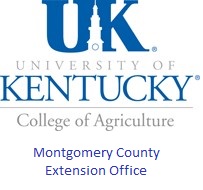By Tom Marshall
Senior Advocate writer
State Sen. Ralph Alvarado and Rep. David Hale addressed issues facing the General Assembly last Friday at a legislative breakfast hosted by the Mt. Sterling-Montgomery County Chamber of Commerce.
The event, held at the Maysville Community and Technical College campus in Mt. Sterling, was attended by about 75 people.
The two Republicans are new to the General Assembly this session and admit that they’ve had to hit the ground running since joining the Legislature.
Topping much of the discussion at the event was the growing heroin epidemic.
Both Alvarado and Hale said the General Assembly will have to address the issue. Both houses have presented legislation in regard to heroin this session.
“It’s killing so many of our kids, all parts of our community, all ages, all creeds, all walks of life,” Alvarado said.
Alvarado said a Senate version of a heroin bill would make penalties harsher on heroin traffickers and users. Possession alone under the bill would be a class C felony punishable by five to 10 years in prison.
It also includes Good Samaritan clauses that would allow people to report an overdose without threat of prosecution.
On the treatment side, $13 million would be set aside for recovery programs.
Hale agreed on the importance of passing heroin legislation regardless of whether it comes out of the House or Senate.
“This is one of the most crucial issues facing us at this time,” he said.
He, too, supports stiffer penalties for heroin offenders.
Another hot topic among the business community at the event was right-to-work legislation being proposed before the General Assembly.
Alvarado said passing such legislation is about promoting investment in the state, not being anti-union. He said many industries and businesses opt to go to other states rather than Kentucky over the right-to-work issue.
“It’s basically an open for business sign in our communities,” he said of right-to-work laws.
Alvarado said he supports a constitutional amendment making Kentucky a right-to-work state.
Chamber director Sandy Romenesko told the senator that she supports Alvarado’s position.
On other legislation, Alvarado said he supports informed consent laws for both abortion and other medical issues, Ultra sounds for prospective mothers prior to an abortion, expanded broadband availability, establishment of a medical malpractice review board, a ceiling for government debt and charter schools.
Alvarado, a Winchester doctor, said he would also like to address many other health-related issues as vice chair of the Senate Health and Welfare Committee, including a smoking ban in public facilities.
“It’s the toughest task we’re going to have,” he said. “A lot of people have issues over people’s rights.”
But, Alvarado said, it’s about protecting people the same as seat belt laws protect motorists.
Hale, a former Dept. of Fish and Wildlife employee and pastor from Wellington in Menifee County, came out in favor of the smoking ban as well.
While his parents raised tobacco, Hale said he has seen too many of his relatives die of cancer not to support a smoking ban.
Hale also voiced support for the local option sales tax.
Such a measure would allow local governments to impose a 1 percent sales tax in their communities to support special projects.
Hale said he supports giving communities this option, but noted that it could not go on the state ballot until at least 2016.
Since his election in November, Hale said he has tried to familiarize himself with the communities in his district by speaking with the officials that oversee them. As for Mt. Sterling, in particular, he said the community is highly thought of in Frankfort and throughout the state.
“I want to work hard for you and work with you,” he told local officials in attendance.
Among his recent visits was to the Montgomery County 911 Center, where he was given a tour by director Ann Johnson.
Hale said the visit had a lasting impression and he supports finding the funding necessary to keep the state’s 911 systems functioning at the highest standard.
Chamber members submitted a few questions for both legislators.
They included one on the issue of legalization of medical marijuana in Kentucky. Both said more research is needed on the issue before the Legislature acts.
Many of those issues surround the impact of marijuana on the individuals it would serve, Alvarado said.
Hale said his constituents have come out about 50-50 on the issue and he hasn’t fully made up his mind, but leans against it presently.
The pair were also asked about the state’s gas tax.
Art Walker from The Walker Co. told the men that the tax is very important to local road projects and there is a misnomer that what is being discussed in the Legislature is an increase in the gas tax when, in actuality, its about returning the tax to previous levels.
Former state Rep. Adrian Arnold, who was serving in the Legislature when the tax was created, reiterated what Walker said by noting its importance in road safety. He mentioned the importance of protecting school children by providing safe roads to bus drivers.
Both legislators voiced support for restoring the gas tax to its previous levels, but Alvarado said the issue would have to be fully resolved through tax reform.
The Legislature has met four days thus far as part of the 30-day session. It returns to work Feb. 3.
The chamber presented both men with pictures of Mt. Sterling to hang in their Frankfort offices.



























